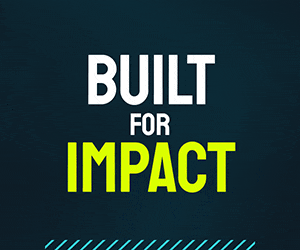ISU Research Park addition takes shape – again

After about four years of planning, regrouping and revising, the Iowa State University Research Park is moving ahead with plans for an addition that could position the business center and the city of Ames as top of mind for more biotech companies.
Steve Carter, the research park’s director, expects to break ground by early fall on a laboratory to extract proteins from plants, a process with many potential pharmaceutical and industrial applications. The addition project currently has a budget of about $6.9 million, which was scaled back from its original design after the Grow Iowa Values Fund investment last year came in at around $4 million instead of the $10 million that had been requested for the laboratory and new business incubator space.
“This has been a fairly prolonged process,” Carter said. “The project involves state funds and federal funds, and that has required some fair time in going through the application processes and developing the contracts and so forth. We’re just about finished with that and ready to begin securing architect engineering services, which will lead to the final design process.”
When the Values Fund investment was reduced last year, Carter said, the team planning he plant protein extraction lab took another look at the project and identified some alternative processing technologies that cost less.
“There have been some technology changes that may help us to reduce the price,” Carter said. “But in order to know how much of a cost savings we’re looking at, we need experts in these process systems to help us do further evaluation.”
Carter said the lab’s primary purpose will be to process crop-produced products. For example, during corn processing, a protein that can be used in a medication could be extracted and purified using the lab’s sophisticated equipment.
“It is enabling infrastructure for an emerging industry which is utilizing plants as a production platform for products of a wide range,” Carter said. “This industry represents a real opportunity for the state of Iowa because of its history and strength in production agriculture.”
Carter said besides pharmaceuticals, “nutraceutical” products, food additives and some industrial-based products could also be developed with the protein-extraction facility’s technology. The lab would be used by both university researchers and private-sector businesses. Companies would have different options, such as leasing lab space on a campaign basis – for a period of months when they’re working on a certain research project – to leasing one of the purification suites for a three-year period.
“It would be a facility where companies and researchers could come and work through the issues in the extraction and purification of these products,” Carter said.
Iowa State University’s 5-year-old Plant Sciences Institute, which already uses some laboratory space at the Research Park, could benefit from the new lab, Carter said.
“We see this as a very compatible initiative with things that the Plant Sciences Institute is doing,” Carter said. “Plant Sciences Institute researchers may utilize this facility, students who graduate from programs within engineering or related programs may actually utilize this facility or gain hands-on experience through it. We see a lot of potential for collaborative efforts.”
In addition to funding from the Values Fund, the biologics project secured $3.2 million from the state of Iowa a few years ago, on the condition that the money would comprise no more than 15 percent of the project’s total cost, and was approved for $2.6 million in U.S. Small Business Administration funds. The Ames Economic Development Commission has provided financial support for engineering and consulting fees.
David Maahs, executive director of the Ames Economic Development Commission, said he sees the lab as an important component in the strategy to secure Ames’ reputation as a biotechnology hot spot.
“This would be a relatively unique facility,” Maahs said. “There is a facility in the St. Louis area that has some of these capabilities, but this would be one of a few like this in the country.”
In addition to St. Louis, Maahs said Ames sometimes competes with cities such as Madison, Wis., Champaign/Urbana, Ill., and West Lafayette, Ind., when trying to catch the interest of biotechnology companies.
“Our goal is to be one of the leading biotech centers in the Midwest,” Maahs said. “With the resources available at ISU and the Plant Sciences Institute and all the other programs, we believe that this is a logical place for ag-biotech research companies.”







